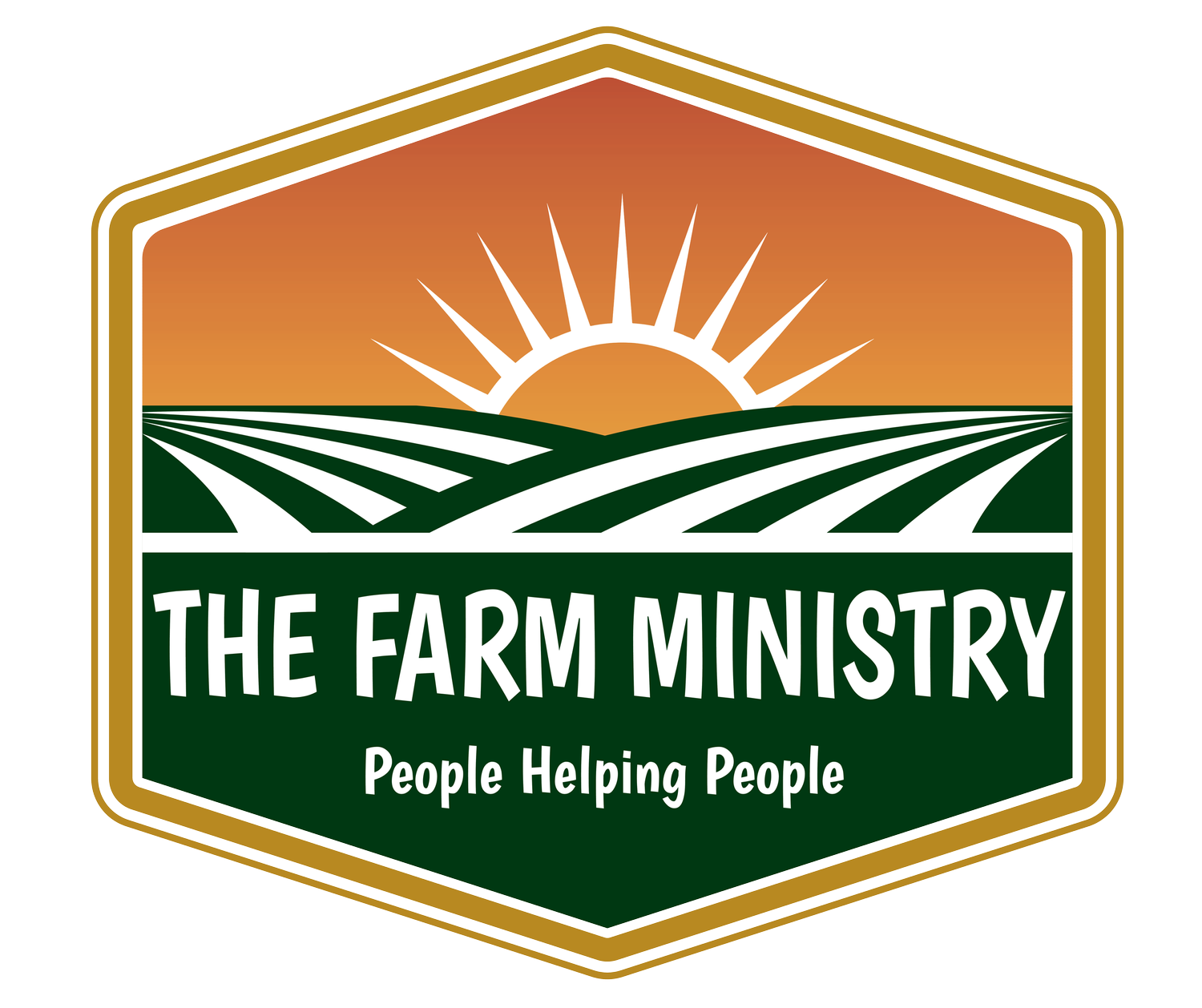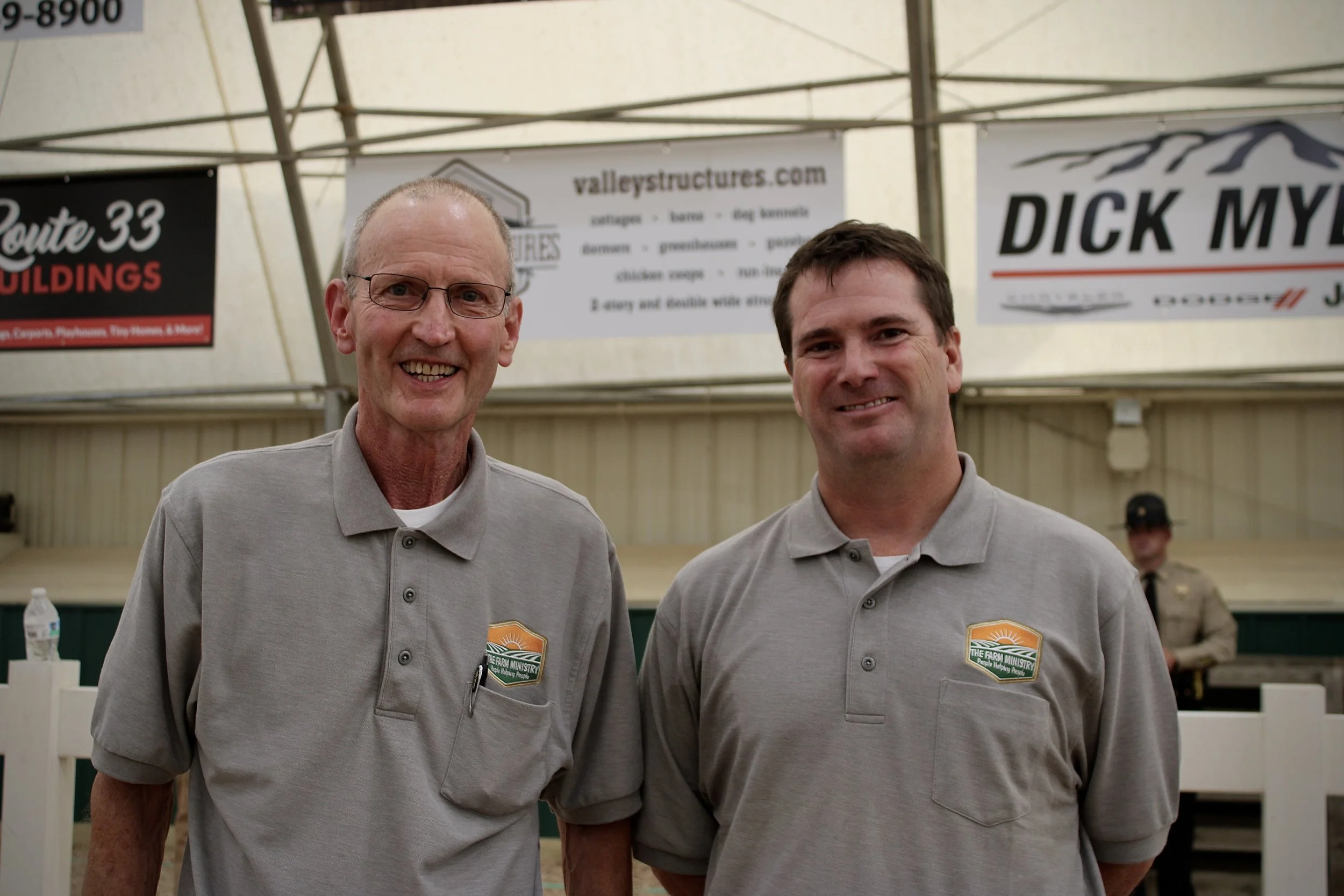On Farming and The Farm Ministry
Pastor Matt Winters, Harrisonburg Baptist Church
The farming industry thrives when farmers have an intimate knowledge of their ecosystem. Regardless of the size of the farm or the type of output farmers produce, farmers must learn their land, understand their livestock or crops’ unique needs, and respond accordingly. Successful farmers capitalize when they use their land’s capacity to plant the right crops or raise the right livestock. Every farm is unique with its own strengths and weaknesses. The wise farmer responds to the lands’ quirks with an ability to overcome obstacles and address deficiencies
What’s beautiful about the agriculture industry is its ability to take intimate, unique land with all its variables and intricacies, and produce food—all over the world. Farmers in the Shenandoah Valley, regardless of their specific product, contribute to the large scale feeding of billions of people. Small, family farms cooperate with farmers across the globe in order to put foods in the bowls of hungry people regardless of where they live. Farmers, then, are among the most important backbones of our world.
Farmers in the Valley often shift their focus from the macro-level of feeding the world to the micro-level to managing their farms. They’re mostly focused on their day-to-day operations. They live and work beside neighbors who have specific needs, who struggle with crises, who are overwhelmed with debt, who are fearful of a recent doctor’s diagnosis, who are mourning the loss of friends in car accidents or who are worried about the cost of food. Farmers produce life necessities that not only help people grow but also bind wounds, offer hope, share encouragement, welcome strangers and impart grace. The harvest of beef, poultry, milk and crops are used by our community to shine light into dark circumstances.
Churches, like farmers, though global in stretch, work best in their specific community. Church members know their families, neighbors, schools and communities well. Churches pay attention to the micro-context in which they serve. At their best, church members respond to the lives around them in disarray and attempt to calm those storms. Churches are often the institutions of communities that are uniquely able to meet needs that emerge. The impact of churches and their ministries are wide and vast and compliment the important work of farmers. Both farmers and churches use their ability to read their environments and respond in ways that bring forth life.
What’s beautiful about the relationship between farming and the Farm Ministry, is that the Farm Ministry is the bridge that connects the farmers to their larger community. Farmers know their products make its way to feed a hungry world. They may not ever know how, specifically, their livestock or crops touch lives. The Farm Ministry serves as a conduit from the farmers to families in need serving as a blessing, often through churches, to empower lives and instill hope. Farmers can learn of stories that their beef made a difference to an individual at a moment in time. Families can learn of the farmer’s legacy and love for the land. That bridge makes the world a bit smaller and tightens the ecosystem of our Valley community.
A brief story:
“In early February 2023, a car wreck injured two and took the lives of three fraternity brothers beside Harrisonburg Baptist Church. While not regular attendees of HBC, the fraternity had partnered with the church on several occasions. One memorable time was a distribution of cheese from the Farm Ministry to an apartment complex inhabited largely by refugee families. The college students were blown away by both the presence of refugee families in their neighborhood and that the cheese came from local farmers. After the car crash took a physical and emotional toll on the fraternity brothers, the Farm Ministry responded to their unique trauma by donating beef briskets to feed them. One of the farmers within the Farm Ministry heard about the circumstances within the fraternity and in a display of mercy volunteered to cook the brisket for the men. Not only did the farmer help cook the brisket but he also showed up to stand beside them in a time of intense turmoil as the fraternity dined. The appreciation and love flowed mutually between host and guest as the blessings and gratitude ebbed back and forth among the neighbors meeting for the first time.
About six months after the meal, one of the fraternity brothers approached a volunteer with the Farm Ministry asking about the ability to return thanks and “pay forward” the blessing they received with the brisket dinner. The fraternity wanted to honor and thank first responders for their dedication to the community and for their attentive care to their fraternity brothers in the car wreck. In fact, they wanted to offer a brisket meal, just like the one shared with them in their time of need. Again, the farmer gladly prepared another brisket while the fraternity brothers and farmer became host to a new set of guests—firefighters, police and paramedics. They chose to imitate and replicate the very love they received from the farmer and his sacrificial gift to their lives. In a surprising and beautiful end to another shared meal, one table of firefighters and paramedics received a call in the middle of their dinner. As they stood to respond to an emergency, all thirty college fraternity brothers stood in solidarity, clapping, cheering and thanking them for their love for their neighborhood.”
Bonds are strengthened around tables; barriers come down when plates are shared. The Farm Ministry offers unique opportunities for a farmer to share his produce that helps bind wounds, fill bellies, cultivate community and change lives. What is true in this scene of brotherhood between farmer, fraternity and first responders is so true in farms and neighborhoods across our region: when we know one another we can care for one another with more grace, dignity and compassion. Strangers no longer exist—the community becomes just neighbors helping neighbors.

